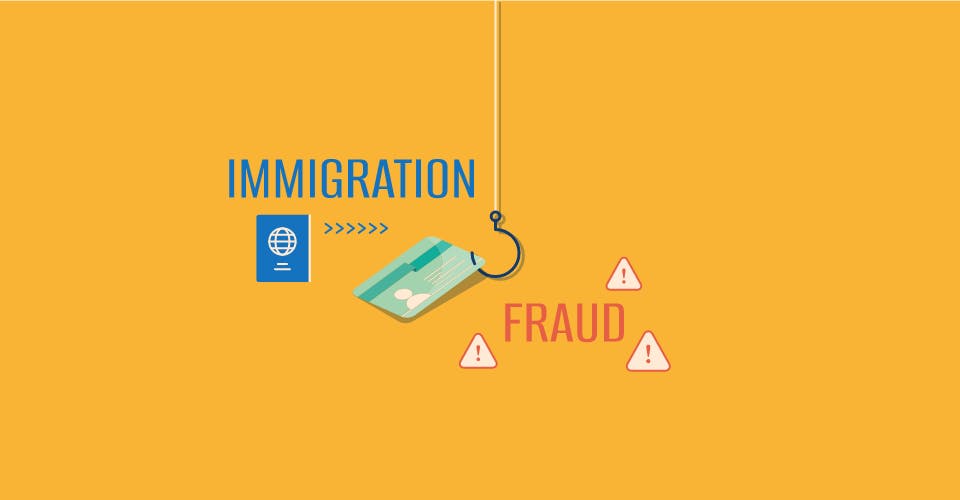U.S. immigration operates through many different sets of policies and procedures that need to be followed in order for those seeking immigration benefits to successfully reside in America legally. For example, when filing for a green card application with the help of an attorney, it is technically illegal for someone to sign off on a G-28 form if they are not actually a licensed attorney. Likewise, it is also against U.S. law for an employer to hire an employee under the table, if that individual does not have a work permit or working authorization in the United States. This affects who is usually paying taxes in the country and who is not.
Thus, immigration fraud can occur in the realm of USCIS documentation and applying for a green card or some other type of benefit, but it can also occur in the workforce when it comes to finding a job and working illegally in the U.S. In this post, we will cover some basic tenets of immigration fraud and also what immigrants should look out for if they are ever questioning their own application.
1. Make sure you’re working with a licensed attorney
It is perfectly legal for immigrants in the United States and abroad to look for trustworthy blogs written by subject matter experts. But when it comes to actually having a representative sign off on immigration paperwork, an accredited attorney needs to be filling in the blank. For example, as mentioned above, If you hire an attorney for help with your immigration case, you should expect him or her to ask you to sign a Form G-28. Further, if you are working with an attorney, you should expect that they are already familiar with a G-28 because they have worked on immigration cases in the past.
Some red flags to look out for are immigration fraudsters who are willing to charge immigrants in the U.S., but aren’t willing to show them their accreditation or law degree. Immigrants especially need to be careful and should always ask supposed lawyers for proof of their degree and a website or affiliated law firm they are working for. In addition, it is a good idea to work with lawyers who have already worked on immigration cases in their career. Don’t be afraid to ask for some portfolio or resume if you are going to be paying someone hundreds of dollars for legal consultations.
2. Asking for an I-9 Form
All immigrants in the United States should apply for a work permit via the working authorization form. However, this doesn’t always happen. Some immigrants might choose to take second hand jobs to make some quick earnings because of a lack of other options. However, immigrants need to be aware of the consequences if they are ever caught working illegally in the U.S. The penalties can be severe and can range from being inadmissible for an adjustment of status to possible jail time or a hefty fine.
This is why it is extremely important for immigrants in the U.S. to always sign an I-9 form, or ask for one, before they start their first day of work. It is especially common in the restaurant industry for employers to skirt this procedure. Simply asking an employer for this form can save immigrants a lot of trouble down the road.
3. Misrepresentation
There are other subtle ways to commit immigration fraud that do not involve hiring a fake immigration lawyer. This includes misrepresentation, which can happen in a number of ways. Misrepresentation is essentially the action of giving a false account of the nature of something. For example, on your I-485 application, you could misrepresent yourself by listing a false address that you never lived at, or by listing an employer you never worked with. The USCIS outlines what is considered misrepresentation here: https://www.uscis.gov/policymanual/volume-8-part-j-chapter-2.














